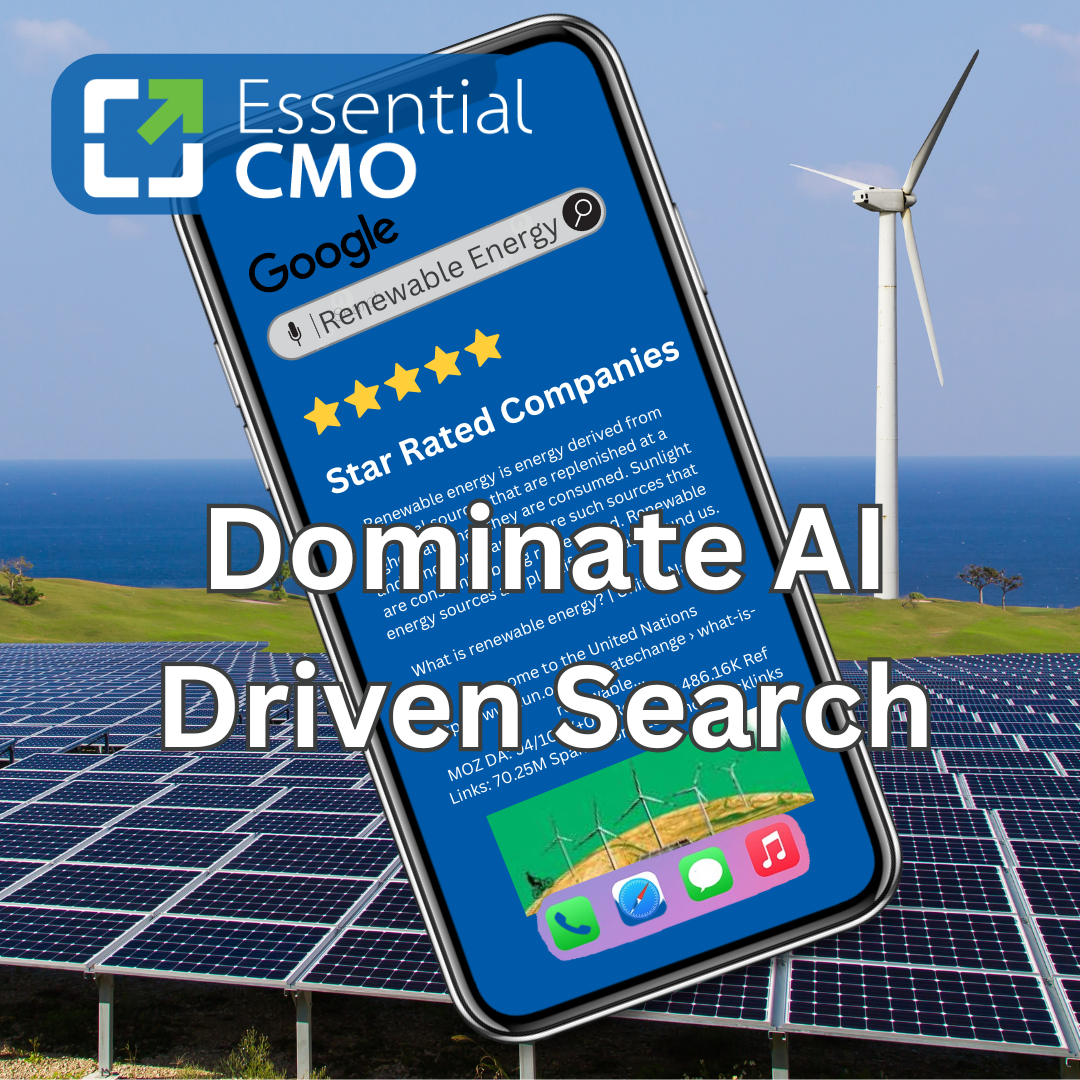Strategic marketing planning process: How to create a simple, effective roadmap to success!

Developing a strategic marketing plan should be among the first steps any company takes before the launch of a product or service or even bringing a business out of a slump. Start the planning process by answering a few questions: What are my goals? What does the plan include? How will I measure results and know whether it's working? However, there is more to do.
Here are the six fundamental steps necessary to craft a world-class, high-impact strategic marketing plan for your cleantech business. Take them before you spend valuable time creating your marketing plan to ensure the best results.
- Align your plan with the company mission/vision
You know the mission of your company. You hold the vision. Any strategic marketing plan has to be based on the mission, vision, values, and goals of the company. Many companies fail because they write this step off as “obvious” and a given. - Research your market
Validate your assumptions about your buyer persona and what they care about by doing market research about trends, a company SWOT analysis, and persona interviews. Research can be a pretty broad area. The quality of your research, including competitive intelligence, will have a direct impact on its value to your marketing. Without it, you will be moving ahead blindly. - Determine a budget
- Develop strategy and plan including media mix
Based on the research in Step 2, you can make decisions on what channels and what media to employ for your marketing. Your research can tell you where your customers are online, and what they are doing, and this will inform the media mix you use. Think through what channels to use to reach your audience. Is an email campaign the best way to engage your customers, or is it social media …or both? In any omni-channel campaign, the right media mix can be the difference between great success and a lackluster campaign. Once you have decided on the channels you will use, you can start creating the assets you need to implement your campaigns. Bring in a great copywriter and designer aligned with your company strategy who will be able to apply your voice and brand to your marketing pieces. Are you adding content marketing to your strategic plan? Check out this blog on content marketing strategies for extra insight. - Schedule/implement
Now that you have set your goals, you have analyzed the market, you have made decisions about what you can spend and where that spend should be placed, it's time to execute your strategic plan. Depending on what decisions you made before this point, you may still have decisions to make regarding how and/or when a campaign is rolled out and the resources you may require. - Review/evaluate/adapt/refine
One of the values inherent in digital marketing is the ready access to data and measurability. With digital marketing, KPI reporting is available nearly instantly giving the leadership the ability to pivot as needed without much bother. If a tactic is not working, you move on to something else. Without regular reviews and evaluation of the plan, you won’t know if you need to pivot, how, or when. A crucial step in moving forward is a quick look back. If evaluation starts on day one, over time it will indicate what's working and what is perhaps underperforming.
These foundational aspects of your company require a deep dive. Your task is to discover the “why” of your company and its products and services. The why will naturally lead you to the “who” in other words, who is this product or service for and why should they care? Your strategy must lay out who your customer is, and the problem they have that your company is uniquely positioned to solve. This description is often called your “Buyer Persona.” This part of your strategy plan could also be called your company's Point of View and your Unique Value Proposition.
Then finally, articulate your desired outcomes for new customers and revenue These should be SMART goals (Specific, Measurable, Achievable, Relevant, and Time-bound).
Running this litmus test on your goals will make sure your expectations are in line with reality.
You gotta pay for it, right? You don’t want to spend anything more than necessary. Without research and a clearly defined goal or goals, it would be hard to know what to spend your marketing dollars on, and what success looks like. A precise budget that is based on clearly defined goals and in-depth research is going to be easier to sell, justify, and implement.
As a rule of thumb, your marketing spend should be considered an investment and if done well, will produce a return. Just like in other investment situations, the spending or investment can be determined by the amount one wants to add to the bottom line.
See our blog on the subject for more details.
There is at least one more thing to consider. Your marketing planning process has to include a review of your marketing team’s skills, strengths, and potential weak areas. Strategy is important, but so is planning. Planning is important, but so is implementation. Implementation is crucial, but so is understanding the analytics as they come back. You need to make decisions based on the best possible information, and your marketing team has to be up to the task of gathering, reading, and analyzing the marketing data that can make the difference between success and lackluster results.
Essential CMO is the Fractional Chief Marketing Officer for the renewable energy industry and is based in Ann Arbor, Michigan with clients across the United States and Canada. Essential CMO is owned by Marketing Monsoon, LLC, a growth agency specializing in lead generation, client acquisition, and customer engagement with alternative energy, healthcare-related, and HR consulting companies. To schedule a Marketing Clarity Call, contact us at 866-851-1793 or schedule a call online.

Jayne Burch, Fractional CMO
Jayne Burch, fractional Chief Marketing Officer for the renewable, cleantech and sustainability sectors. I help CEOs in these companies achieve their goals and reach their target markets. With over 24 years of experience in business and marketing, I know how to get the job done quickly and efficiently.

